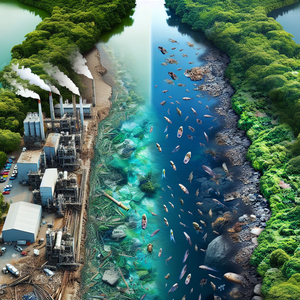Beyond Fossil Fuels: How Petroleum Engineers Can Thrive in a Green Energy Future

The global push to achieve carbon neutrality has transformed the energy sector. Renewable energy sources such as solar, wind, and hydropower now account for nearly one-third of global electricity generation—a figure that continues to rise. Governments and corporations alike are accelerating investment in green technologies, from electric vehicles (EVs) to hydrogen fuel cells, and implementing policies aimed at reducing greenhouse gas emissions. This shift has implications for petroleum engineers, as the demand for oil and gas is predicted to decline over time. The International Energy Agency (IEA) forecasts that oil demand could peak as early as the mid-2030s, with electric cars and renewable energy systems reducing reliance on traditional fossil fuels. However, this does not signal the demise of petroleum engineering as a career. Instead, it points to an evolution—one in which the skills and expertise of petroleum engineers are adapted to meet the needs of a greener world.
Transferring Skills to Renewable Energy: Unlocking New Opportunities
Petroleum engineers possess a wealth of technical knowledge and problem-solving skills that extend far beyond oil and gas. Their expertise in energy systems, subsurface geology, and fluid dynamics can be applied to a wide range of renewable energy technologies, making them valuable contributors to the clean energy transition. Below are some of the key areas where petroleum engineers can make a significant impact: 1. **Geothermal Energy Development** Geothermal energy, which involves tapping into the Earth's natural heat, is a rapidly growing field that shares significant overlap with petroleum engineering. The processes of drilling, managing reservoirs, and understanding subsurface formations are nearly identical to those used in oil and gas extraction. Petroleum engineers can seamlessly pivot to geothermal energy projects, helping to harness this renewable resource for electricity generation and heating. *Example:* Iceland, a global leader in geothermal energy, has developed extensive geothermal power plants using technologies and techniques that parallel those in the oil and gas industry. Engineers transitioning from fossil fuels have been instrumental in these efforts. 2. **Carbon Capture, Utilization, and Storage (CCUS)** As industries aim to reduce their carbon emissions, CCUS has emerged as a critical tool. Petroleum engineers, with their deep understanding of reservoir engineering, are uniquely qualified to design and manage carbon sequestration projects. These involve capturing CO₂ emissions from industrial processes and storing them in depleted oil and gas reservoirs or other geological formations. *Example:* Companies like Shell and ExxonMobil are investing in large-scale CCUS projects, many of which rely on petroleum engineers to oversee the injection and long-term storage of carbon dioxide. 3. **Hydrogen Energy Systems** Hydrogen is gaining traction as a clean energy carrier that can power vehicles, industries, and even homes. Petroleum engineers can contribute their knowledge of gas storage, pipeline systems, and fluid mechanics to help develop the infrastructure needed for hydrogen production, storage, and transport. In particular, "blue hydrogen" production, which involves creating hydrogen from natural gas while capturing the associated CO₂ emissions, aligns closely with their skill set. 4. **Offshore Wind Energy** Offshore wind farms are rapidly expanding, often in areas where petroleum engineers have traditionally overseen oil and gas platforms. Their experience in offshore operations, structural engineering, and marine logistics positions them to transition into roles supporting offshore wind development. This includes designing and maintaining wind turbine foundations and optimizing energy generation. *Example:* Denmark’s Ørsted transitioned from an oil and gas company to a renewable energy leader, with many engineers from traditional energy sectors contributing to its offshore wind projects.
Bridging the Gap: Integrating Renewables with Fossil Fuels
While the world moves toward renewables, fossil fuels will remain part of the energy mix for the foreseeable future. This creates an opportunity for petroleum engineers to act as bridge-builders, integrating renewable technologies into existing oil and gas operations to reduce their environmental impact. For instance, oil companies are increasingly using solar and wind power to operate drilling rigs and processing facilities, reducing their reliance on diesel generators. Additionally, capturing and utilizing carbon emissions from oil and gas operations can help these industries align with climate goals. *Example:* Chevron and BP are investing in hybrid energy projects that combine fossil fuel production with on-site solar or wind power generation. Petroleum engineers are key players in designing and implementing these systems.
Embracing Lifelong Learning and Innovation: Adapting to Change
As the energy landscape evolves, so too must the skills and knowledge of petroleum engineers. Lifelong learning will be essential for those who want to remain at the forefront of the industry. This might involve: - **Pursuing Certifications and Education:** Engineers can enroll in programs focused on renewable energy, geothermal systems, or carbon capture technologies. Universities and professional organizations are increasingly offering courses tailored to oil and gas professionals looking to transition. - **Staying Informed:** Attending industry conferences and staying up-to-date on the latest advancements in energy technology will help engineers anticipate trends and opportunities. - **Collaboration and Innovation:** Working alongside experts in renewable energy and related fields will foster a culture of innovation, allowing petroleum engineers to develop cutting-edge solutions for the energy challenges of tomorrow.
The transition beyond fossil fuels is not an end—it is a beginning. Petroleum engineers, long seen as the backbone of the fossil fuel industry, are uniquely equipped to drive the green energy revolution. Their expertise, adaptability, and problem-solving mindset make them invaluable not just in oil and gas but in a wide array of renewable energy technologies. By embracing change and pursuing opportunities in geothermal energy, CCUS, hydrogen systems, and hybrid projects, petroleum engineers can ensure their skills remain relevant and their contributions impactful. As the world moves toward a cleaner, more sustainable energy future, petroleum engineers who rise to the challenge will leave a legacy not only for their industry but for the planet. The petroleum engineer of the future will not simply extract resources from the Earth—they will create solutions that power the world responsibly. In doing so, they will secure their place as pioneers in the next chapter of energy innovation. The tools to thrive in this changing landscape are already in their hands—all that remains is for them to seize the opportunity.
Geothermal Energy Engineer
Ormat Technologies, Chevron (geothermal division), and national energy agencies
Core Responsibilities
Design and manage geothermal well drilling and reservoir operations.
Analyze subsurface geology to identify viable geothermal sites.
Oversee geothermal power plant operations and optimize energy production.
Required Skills
Strong understanding of subsurface modeling, thermodynamics, and fluid flow.
Experience in drilling technologies and reservoir management.
Familiarity with software like Petra or Eclipse for reservoir simulations.
Carbon Capture and Storage (CCUS) Engineer
Shell, ExxonMobil, and startups like Carbon Clean or Climeworks
Core Responsibilities
Develop and implement carbon injection systems in depleted oil and gas reservoirs.
Monitor and optimize CO₂ storage to ensure long-term containment.
Collaborate with regulatory bodies to meet environmental compliance standards.
Required Skills
Expertise in reservoir engineering and fluid dynamics.
Knowledge of carbon capture technologies like amine scrubbing or oxy-fuel combustion.
Familiarity with geomechanical modeling software.
Hydrogen Infrastructure Engineer
Air Liquide, BP, and Linde
Core Responsibilities
Design pipelines, storage tanks, and production facilities for green and blue hydrogen.
Optimize hydrogen production processes such as electrolysis or methane reforming.
Ensure safety protocols for hydrogen handling and transportation.
Required Skills
Proficiency in chemical engineering principles and gas storage systems.
Experience with high-pressure vessels, cryogenics, or pipeline design.
Familiarity with hydrogen safety standards (e.g., ISO/TR 15916).
Offshore Wind Project Engineer
Ørsted, Siemens Gamesa, and Vestas
Core Responsibilities
Design and oversee the installation of offshore wind turbine foundations.
Manage marine logistics and ensure compliance with environmental regulations.
Optimize energy output through turbine placement and structural design.
Required Skills
Expertise in offshore operations and structural engineering.
Experience in managing large-scale marine construction projects.
Familiarity with wind energy modeling tools like WindPRO or OpenWind.
Energy Transition Consultant
McKinsey & Company, Deloitte (Energy Practice), and Accenture
Core Responsibilities
Develop strategies for integrating renewable technologies into existing operations.
Conduct feasibility studies for hybrid energy projects (e.g., solar-assisted oil extraction).
Advise on regulatory requirements and market trends in clean energy.
Required Skills
Strong knowledge of both fossil fuel and renewable energy systems.
Analytical skills to evaluate project sustainability and ROI.
Expertise in energy policy and carbon accounting frameworks.


